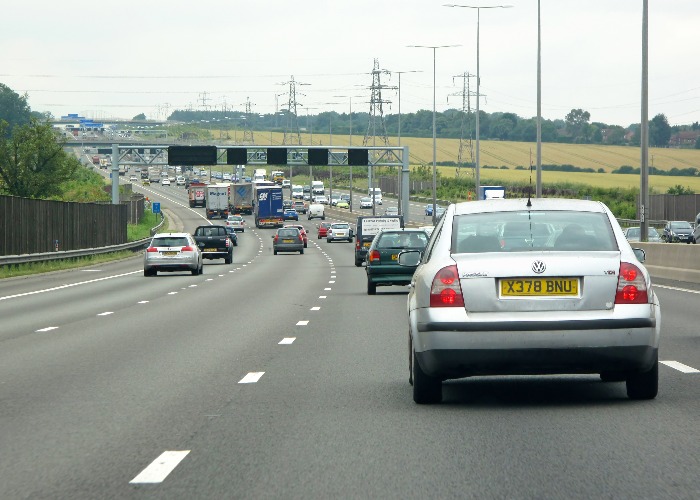Cheap car insurance? Your no-claims ‘discount’ isn’t that important

Once you have two years of no-claims, this research shows your car insurance premiums will still climb…
Car insurance is a pretty steep cost for new drivers but more established motorists may assume they will be rewarded for their safety with lower premiums each year.
MoneySuperMarket’s latest data, from March this year, shows the average annual premium for a new driver aged 17 to 24 was £1,116.27.
That’s a heck of a cost for a younger driver to find but most reassure themselves that after a few years proving there are safe on the road, they can reap the benefits of a no-claims discount.
Yet new analysis of insurance premiums from Coverbox, a blackbox insurance specialist, shows that after the first two years of no-claims, the benefits of a clean slate drop because the premium you’re offered is likely to continue to rise.
The figures show that, while the first two years offer a real improvement on premiums, after that drivers will see their premiums rise even if they have kept their record clean.
That’s because the base insurance cost rises at a greater rate than the no-claims discount offered by most insurers, meaning the final premium quote increases each year.
So, insurers offer an average discount of 38% for three years of no-claims, which is actually a 15% increase in the discount compared to two years of no-claims. Yet despite that, the typical premium rises an average of 2.7%, or £16.
Now read: Petrol prices FINALLY fall, here's how to take advantage
Howard Collinge, director at Coverbox, said: “While the standard no-claims discount offered to non-telematics drivers initially leads to good savings, diminishing discounts can be counteracted by rising general insurance prices, ultimately resulting in drivers paying more for insurance at renewal even if they continue to drive safely on the roads.”
Of course, you still need the no-claims to avoid even higher premiums, but no matter how well you drive, you’re simply not going to earn a bigger discount than the rate of insurance premium inflation. Ouch.
Cost of cover
A recent survey of car insurance prices carried out by Confused.com showed that the price of insurance actually fell by 2% over the last year.
However, that came after three year of sustained increases, so drivers may not have been that keen to celebrate the fall! The average driver now pays a substantial £768 a year for their car insurance.
And the drop certainly didn’t apply to everyone. Motorists aged 68 and above saw their average premium jump by 8%, or £40, compared to last year – although their average premium is just £543, so they are paying significantly less than the national average.
Interestingly, men still pay substantially more than women on average; £95 more a year than women according to the comparison site.
Since the EU gender directive, insurers aren’t allowed to charge men more than women simply because they are men but other risk factors mean the price gets hiked anyway.
For example, men are more likely to drive more expensive cars with larger engines, meaning their claims are often more expensive too.
Statistically, Confused.com says men are also more likely to have motoring convictions than women.
Need a new car? Read about the best financing options
Bringing it down
Whether you’re a new or old driver, whether you have no years’ no claims or ten, the chances are you want to bring down the cost of your car insurance.
And probably the best way to do that is to check your renewal quote against the market to see if other insurers would give you a better price for the same amount of cover.
It can be possible to save hundreds of pounds a year by finding the best price for the cover you need, as I recently discovered when my home insurance renewal quote came in at £700 more than I eventually paid.
There are many ways to cut the cost of car insurance, ranging from avoiding paying monthly to using black box cover.
We’ve written a guide to 24 different ways to bring down the cost of your car insurance premium, which is a good place to start.
However, if you’re serious about paying less for your protection then you also need to time your renewal accordingly.
Research carried out last year by the comparison site comparethemarket.com found that switching at the best possible time can saver drivers as much as £349 on their annual premium.
By switching three weeks before a renewal date, drivers can scoop up the very best premiums. Leaving it to the last minute can mean paying far, far more than necessary.
Their analysis showed that drivers can stand to save an average of £349 if they switch their car insurance provider three weeks prior to the renewal date, when the average cost of a policy is £407.
That compares shockingly to renewing on the actual day, when the cost is typically £756, according to this comparison site’s numbers.
A no-claims discount is an important part of bringing down the cost of cover. But once you have that in place, there’s clearly no time to rest on your laurels.
It’s vital to move quickly each renewal season and make sure you can save as much as possible, particularly if premiums stop their slight fall and continue to climb.
Now read: M&S two dine for a tenner deal is back
When do you take out new cover? Have you noticed a price difference if you leave it to the last minute? What tips do you follow that bring down the cost of your insurance? Share your experiences with readers using the comments below.
Comments
Be the first to comment
Do you want to comment on this article? You need to be signed in for this feature